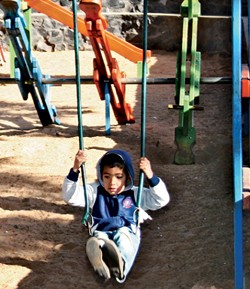
The town of Ñemby was immersed in a financial crisis in 2002: the municipality had large debts, salaries to civil servants were five months behind, many taxes were not being collected, and community services were minimal. Concerned about the future of the municipality, the mayor invited a USAID-sponsored program to help Ñemby fix its finances and improve long-term governance. He also called on citizens to help him bring about real and lasting change.
USAID’s program designed a solution that became known as Vecino Cobra a Vecino, or Neighbor Collects from Neighbor. The idea was to improve property tax collection by using neighborhood committees to help collect taxes and by training citizens to deliver tax notifications to their neighbors.
The mayor promised to invest 30 percent of taxes collected into public works and services in participating neighborhoods. This incentive motivated residents, who enthusiastically began helping tax collection efforts. After 11 months, property taxes and license fees increased by 120 percent over the previous year. This enabled new investments in public works and services, which benefitted all communities involved in the project.
Residents of the Villa Anita neighborhood, who had initially resisted paying taxes, became some of the most staunch supporters of obeying tax laws. They informed other residents of their rights and obligations and began collecting taxes from neighbors. With the increased tax revenues, the neighborhood was able to build a playground, construct a wall, level the ground of a sports field, and improve the neighborhood plaza. “Thanks to the Neighbor Collects from a Neighbor program, we all work together for our community,” says Agustín, a member of the neighborhood committee. A nearby neighborhood, Paí Ñú, invested the additional tax revenues in repairing the local square and paving a street full of potholes that had been nearly impossible to drive on.







Comment
Make a general inquiry or suggest an improvement.